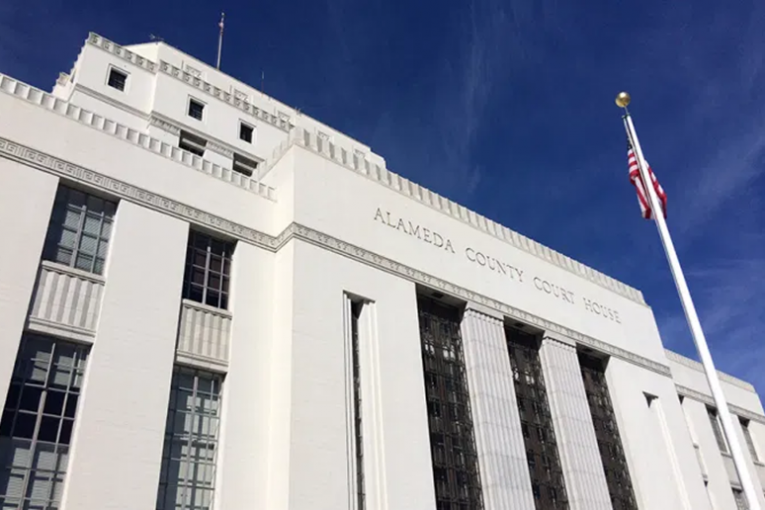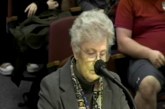
 By S. Priana Aquino
By S. Priana Aquino
ALAMEDA, CA – The trial of Salaha McClellan proceeded Wednesday in Alameda County Superior Court, and, prior to the jury arriving, the defense introduced a mistrial motion to the judge, charging evidence had not been provided to them by the prosecution.
McClellan was arrested on Jan. 24 and charged with displaying a deadly weapon and threatening to commit a crime of intimidation.
Prosecutors explained how McClellan raised a golf club over his head and threatened the victim, telling her, “You’re going to die tonight.” Oakland police arrived at the scene and found golf clubs in McClellan’s car.
The first article of evidence the defense took issue with was body camera footage worn by an office, noting to the judge that they had not received this footage until just recently with little time to review it in full.
In response, the prosecution said it had just learned this morning that the officer never annotated it, which meant that it wasn’t included with other footage associated with this case number.
But all body cam footage comes from an agency. Since this specific footage was never annotated to include the case number, the agency did not include it when they sent it to the defense.
The DA’s office also argued that it had also never received a specific request about this camera footage.
An additional reason the defense introduced the mistrial motion was that the golf club used in the incident had not been brought into the courtroom as a piece of evidence.
“When I asked, ‘Was it recovered into evidence,’ to me that meant, ‘was that recovered and put into evidence,” stated the defense. “I’m not saying this is intentional, but it should trigger a thought of where it might be, including the evidence locker,” continued the defense.
In response, the prosecution explained it provided a reasonable three-day turnaround.
In a final plea to the judge, the defense argued that the motion for mistrial was appropriate given the late disclosure of evidence.
The judge acknowledged the DA’s explanations for the lack of evidence and stated that the court didn’t believe there was any prejudice that occurred. The motion for mistrial was denied.






